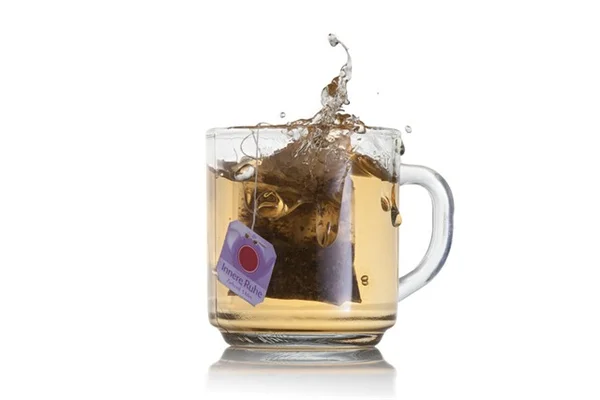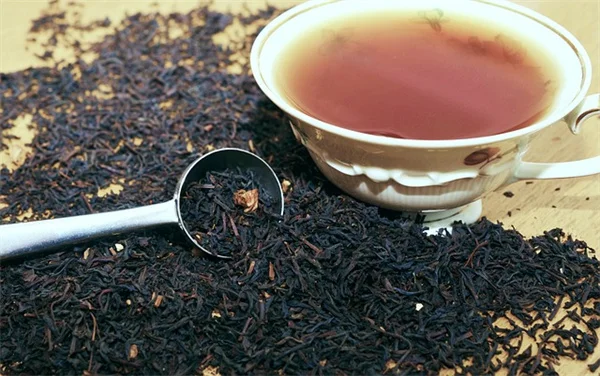Advertisement
Can frequent antibiotic use increase your risk of inflammatory bowel disease (IBD)? The answer is yes - a major new study reveals that each course of antibiotics significantly raises your chances of developing Crohn's disease or ulcerative colitis, especially if you're over 40. Researchers found the risk peaks 1-2 years after antibiotic use and increases with each additional prescription. But here's the good news: your gut can recover when you stop taking antibiotics, with risk decreasing over time. I'll break down exactly what this means for your health and how you can protect yourself while still getting the medical care you need.
E.g. :Stress and IBS: 5 Proven Ways to Calm Your Gut Naturally
- 1、Antibiotics and Your Gut: The Surprising IBD Connection
- 2、The Cumulative Effect: How Multiple Courses Change the Game
- 3、The Nitrofurantoin Exception: One Safe(r) Option
- 4、Understanding IBD: More Than Just a Tummy Ache
- 5、The Gut Microbiome: Your Internal Ecosystem
- 6、Practical Takeaways: Protecting Your Gut Health
- 7、The Hidden World of Your Gut Bacteria
- 8、Antibiotic Alternatives Worth Considering
- 9、The Probiotic Puzzle: Do They Really Help?
- 10、Kids and Antibiotics: Special Considerations
- 11、The Future of Antibiotics: What's Coming Next?
- 12、FAQs
Antibiotics and Your Gut: The Surprising IBD Connection
Why Your Last Antibiotic Prescription Might Matter More Than You Think
You know that feeling when your doctor writes you yet another antibiotic prescription? Well, here's something that might surprise you: each round of antibiotics could be increasing your risk of developing inflammatory bowel disease (IBD). A massive study tracking over 6 million Danes revealed some eye-opening patterns about our gut health.
Let me break it down for you - researchers found that people who took antibiotics were significantly more likely to develop Crohn's disease or ulcerative colitis later. And get this - the risk didn't just appear immediately. The danger zone peaks 1-2 years after taking antibiotics, especially those targeting gut infections. But here's some good news - the risk gradually decreases if you stop taking antibiotics.
The Age Factor: How Your Birthday Affects Your Risk
Now here's where things get really interesting. The study showed that while antibiotics increase IBD risk at any age, your risk jumps dramatically as you get older. Check out this comparison:
| Age Group | Increased IBD Risk |
|---|---|
| 10-40 years | 28% higher |
| 40-60 years | 46% higher |
| 60+ years | 47% higher |
For Crohn's disease specifically, the numbers were even more striking. Middle-aged folks (40-50 years) faced a whopping 62% higher risk compared to those who didn't take antibiotics. Makes you think twice about that unnecessary antibiotic prescription, doesn't it?
The Cumulative Effect: How Multiple Courses Change the Game
 Photos provided by pixabay
Photos provided by pixabay
When One Isn't Enough: The Danger of Repeated Antibiotic Use
Here's something that really shocked me - the risk isn't just a one-time thing. Each additional course of antibiotics adds to your IBD risk like stacking blocks. The study found that:
• Second course: 11% higher risk
• Third course: 15% higher risk
• Fourth course: 14% higher risk
But wait - it gets worse. If you've taken five or more rounds of antibiotics, your risk practically doubles in some age groups. For people between 40-60, the risk increases by a staggering 100%. That's right - double the chance of developing IBD!
The Silver Lining: Your Gut Can Recover
Now before you panic, let me share some hopeful news. The study showed that your gut can bounce back if you give it time. After stopping antibiotics:
• First 2 years: Highest risk period
• Years 4-5: Risk drops significantly
• Beyond 5 years: Risk continues to decrease
For example, in the 40-60 age group, that scary 66% increased risk drops to just 21% after 4-5 years without antibiotics. Your gut microbiome is resilient - it just needs time to recover from the antibiotic assault.
The Nitrofurantoin Exception: One Safe(r) Option
The Antibiotic That Breaks the Pattern
In this sea of concerning findings, there was one surprising exception - nitrofurantoin. Unlike other antibiotics, this one didn't show any increased IBD risk at any age. Why? As Dr. Nguyen explains, "This antibiotic is more selective of urinary organisms than other broad-spectrum antibiotics."
Think of it like this: most antibiotics are like bulldozers plowing through your entire gut microbiome, while nitrofurantoin is more like a precision laser targeting specific areas. When you absolutely need antibiotics, this might be the better choice for your gut health.
 Photos provided by pixabay
Photos provided by pixabay
When One Isn't Enough: The Danger of Repeated Antibiotic Use
Now, I'm not saying you should refuse all antibiotics. There are absolutely times when they're lifesavers. But here's what I suggest:
1. Ask your doctor: "Is this antibiotic absolutely necessary?"
2. Inquire about alternatives like nitrofurantoin when appropriate
3. Consider probiotic support during and after antibiotic use
4. Space out antibiotic courses when possible
Remember - antibiotic stewardship isn't just about preventing superbugs. As Dr. Faye points out, it's also about protecting your gut from potential IBD risks, especially as you age.
Understanding IBD: More Than Just a Tummy Ache
Crohn's vs. Colitis: What's the Difference?
You might be wondering - what exactly is this IBD we're so worried about? IBD stands for inflammatory bowel disease, which includes two main conditions:
• Crohn's disease: Can affect any part of your digestive tract
• Ulcerative colitis: Specifically targets your colon
Both conditions cause chronic inflammation that can lead to serious complications. Imagine your digestive system constantly feeling like you've got food poisoning - that's what many IBD patients deal with daily.
The Warning Signs You Should Never Ignore
How do you know if you might be developing IBD? Watch for these red flags:
- Persistent diarrhea (we're talking weeks, not days)
- Abdominal pain that won't quit
- Blood in your stool (yes, it's as scary as it sounds)
- Unexplained weight loss
- Fatigue that makes you feel like a zombie
If you're experiencing these symptoms, especially if you've had multiple antibiotic courses, don't wait - see a gastroenterologist. Early diagnosis can make a huge difference in managing IBD.
The Gut Microbiome: Your Internal Ecosystem
 Photos provided by pixabay
Photos provided by pixabay
When One Isn't Enough: The Danger of Repeated Antibiotic Use
Here's a mind-blowing fact: your gut contains about 100 trillion bacteria - that's more than all the stars in our galaxy! This complex ecosystem, known as your microbiome, plays crucial roles in:
• Digesting food
• Regulating immunity
• Protecting against pathogens
• Even influencing your mood
Now here's the kicker - antibiotics don't discriminate between "good" and "bad" bacteria. They nuke everything in their path. This study suggests that disrupting this delicate balance might contribute to IBD development.
Can You Rebuild a Healthy Microbiome?
You might be thinking: "Great, I've taken antibiotics before - am I doomed?" Not at all! While the study shows increased risk, remember that:
1. Risk decreases over time without antibiotics
2. You can support microbiome recovery through diet and lifestyle
3. Not everyone who takes antibiotics develops IBD
Fermented foods, fiber-rich diets, and possibly probiotics (though research is still evolving) might help restore balance. Think of it like rehab for your gut after antibiotic use.
Practical Takeaways: Protecting Your Gut Health
When Antibiotics Are Necessary: A Balanced Approach
Let's be clear - antibiotics save lives. The key is using them wisely. Dr. Mesilhy puts it perfectly: "Antibiotics are a magical solution for many infectious diseases. However, they are also double-edged swords."
So when should you take them? Definitely for:
- Bacterial pneumonia
- Strep throat (confirmed by test)
- Urinary tract infections
- Serious skin infections
But maybe think twice for:
- Mild sinus infections (often viral)
- Simple colds (always viral)
- Uncomplicated ear infections (sometimes resolve on their own)
Your Gut Health Action Plan
Based on this research, here's my three-step plan for protecting your gut:
1. Be antibiotic-smart: Only take them when truly needed, and complete the full course when prescribed.
2. Monitor your gut: Pay attention to persistent digestive symptoms, especially after antibiotic use.
3. Support recovery: Eat fermented foods, plenty of fiber, and stay hydrated after antibiotics.
Remember - your gut health is a lifelong journey. While this study shows antibiotics can increase IBD risk, being informed helps you make better choices for your microbiome and overall health.
The Hidden World of Your Gut Bacteria
Meet Your Microscopic Roommates
Did you know you're never truly alone? Your gut houses an entire universe of microorganisms that outnumber your own cells! We're talking about 3-5 pounds of bacteria living inside you right now. These tiny creatures aren't just freeloaders - they're essential workers keeping your digestive system running smoothly.
Imagine your gut as a bustling city where different bacterial species have specific jobs. Some break down fiber, others produce vitamins, and many train your immune system. When antibiotics come through like a wrecking ball, they don't just hit the bad guys - they demolish entire neighborhoods of beneficial bacteria too. That's why repeated antibiotic use can leave your gut vulnerable to problems like IBD.
The Gut-Brain Connection You Didn't See Coming
Here's something wild - your gut bacteria might be influencing your mood more than you realize. Scientists call this the gut-brain axis, and it's a two-way communication system between your digestive system and your brain. Ever had "butterflies" in your stomach when nervous? That's this connection in action!
Recent research shows that gut bacteria produce about 90% of your body's serotonin - the "feel good" chemical. When antibiotics disrupt your microbiome, they might be affecting your mental health too. One study found that mice given antibiotics showed increased anxiety-like behaviors until their gut bacteria recovered. Makes you think differently about that post-antibiotic blues, doesn't it?
Antibiotic Alternatives Worth Considering
Nature's Pharmacy: Plants That Fight Infection
Before reaching for antibiotics, you might want to explore some natural alternatives that have stood the test of time. Many cultures have used these for centuries:
| Natural Remedy | Best For | Scientific Backing |
|---|---|---|
| Garlic | Mild infections, immune support | Strong - contains allicin with antimicrobial properties |
| Honey | Sore throats, minor wounds | Moderate - especially Manuka honey |
| Ginger | Digestive issues, nausea | Moderate - anti-inflammatory effects |
Now, I'm not saying these can replace antibiotics for serious infections - they absolutely can't. But for minor issues, they might help you avoid unnecessary antibiotic use and protect your precious gut bacteria.
When to Choose Natural vs. Pharmaceutical
Here's my rule of thumb: if you've got a fever over 101°F, symptoms lasting more than 10 days, or severe pain, get to a doctor. But for that scratchy throat at the start of a cold? Try gargling with salt water or sipping ginger tea first. Your gut will thank you later!
Remember that time I thought I had a bacterial sinus infection but it was just allergies? I almost asked for antibiotics before trying nasal irrigation. Two days of saline rinses later, I was fine. Not every sniffle needs nuclear options!
The Probiotic Puzzle: Do They Really Help?
Sorting Fact From Fiction in the Supplement Aisle
Walk into any pharmacy and you'll see shelves packed with probiotic supplements promising to "restore gut health." But here's the million-dollar question: Do they actually work after antibiotics? The answer is... complicated.
Some studies show certain probiotic strains can help prevent antibiotic-associated diarrhea. Others suggest they might speed up microbiome recovery. But - and this is a big but - not all probiotics are created equal. Many products contain strains that haven't been thoroughly researched, or they might not survive your stomach acid to reach your gut alive.
Food First: The Best Probiotic Sources
Instead of rushing to buy expensive supplements, consider adding these probiotic-rich foods to your diet:
• Yogurt with live cultures (check the label!)
• Kefir - it's like yogurt's fizzy cousin
• Sauerkraut - the fermented cabbage your grandma loved
• Kimchi - Korea's spicy fermented veggie dish
• Miso - that savory Japanese paste in your soup
I started eating yogurt daily after my last antibiotic course, and my digestion returned to normal much faster than previous times. The bonus? These foods come with other nutrients too, unlike pills that just contain bacteria.
Kids and Antibiotics: Special Considerations
The Delicate Balance of Developing Microbiomes
If you're a parent, this might really concern you. Children's gut microbiomes are still developing, making them especially vulnerable to antibiotic effects. Research shows that early antibiotic use can have long-lasting impacts on a child's microbiome composition.
One fascinating study found that kids who received antibiotics in their first year had different gut bacteria at age 5 compared to those who didn't. These changes were associated with higher risks for allergies, asthma, and yes - IBD. Makes you think twice about demanding antibiotics for every childhood ear infection, doesn't it?
Smart Strategies for Parents
As a parent myself, I know how tough it is when your kid is sick. Here's what pediatricians recommend:
1. Always ask if antibiotics are truly necessary
2. For ear infections, consider the "wait-and-see" approach for 48-72 hours if the child isn't severely ill
3. If antibiotics are needed, complete the full course as prescribed
4. Offer probiotic-rich foods afterward (yogurt smoothies work great!)
5. Breastfeed if possible - it helps establish healthy gut bacteria
My sister's pediatrician taught her this trick: when her toddler needs antibiotics, she mixes the medicine into chocolate pudding. The strong flavor masks the bitterness, ensuring the full dose gets taken without battles. Genius!
The Future of Antibiotics: What's Coming Next?
Precision Medicine: Targeted Antibiotic Therapies
Scientists are working on smarter antibiotics that target only harmful bacteria while sparing your beneficial microbes. These narrow-spectrum antibiotics could revolutionize how we treat infections while protecting gut health.
Imagine getting a rapid test at your doctor's office that identifies exactly which bacteria is causing your infection. Instead of blasting all bacteria with broad-spectrum drugs, you'd get a precision treatment. Researchers are also developing "designer" probiotics that could outcompete harmful bacteria, potentially reducing antibiotic needs.
Phage Therapy: Nature's Original Antibiotic
Here's something straight out of science fiction: viruses that eat bacteria! Called bacteriophages ("phages" for short), these microscopic predators specifically target bacterial cells. The best part? They're completely harmless to human cells and don't disrupt your microbiome like antibiotics do.
While phage therapy isn't widely available yet, it's showing promise for treating antibiotic-resistant infections. In one amazing case, a patient with a multidrug-resistant infection was saved by phage therapy after all antibiotics failed. As research continues, we might see more of these natural bacterial assassins in medicine.
Who knew the future of infection treatment might involve weaponized viruses? Nature always finds the most fascinating solutions!
E.g. :Antibiotic use as a risk factor for inflammatory bowel disease across ...
FAQs
Q: How much does antibiotic use increase IBD risk?
A: The study shows antibiotic use increases IBD risk at all ages, but the numbers are shocking. For folks between 40-60 years old (that's most of us reading this), just one course of antibiotics means you're 46% more likely to develop IBD compared to someone who hasn't taken them. If you've had five or more prescriptions? Your risk doubles. What really surprised me is how the risk compounds - each additional antibiotic course adds about 11-15% more risk. The good news? Your gut starts recovering immediately after stopping antibiotics, with risk dropping significantly within 4-5 years.
Q: Why does age affect the antibiotic-IBD connection?
A: Here's what the researchers discovered about age and risk: while younger people (10-40) face a 28% increased risk, middle-aged adults (40-60) jump to 46%, and seniors (60+) hit 47%. For Crohn's disease specifically, the 40-50 age group sees the highest spike at 62%. Why this pattern? Experts think it's because our gut microbiome becomes less resilient as we age. Think of your gut like a garden - when you're young, it bounces back quickly from disturbances (like antibiotics). But as we get older, those same disturbances cause more lasting damage that's harder to repair.
Q: Is there any safe antibiotic for gut health?
A: Surprisingly, yes! The study found one antibiotic - nitrofurantoin - didn't increase IBD risk at any age. As Dr. Nguyen explains, this medication is "more selective of urinary organisms" than broad-spectrum antibiotics that wipe out gut bacteria indiscriminately. When you need antibiotics, ask your doctor if nitrofurantoin could work for your condition. It's commonly used for UTIs and may be gentler on your microbiome. Remember though - no antibiotic is completely risk-free, so they should only be used when truly necessary.
Q: How long after antibiotics am I at highest risk for IBD?
A: The danger zone is clearest in the first two years after taking antibiotics. For example, in the 40-60 age group, risk spikes to 66% higher during this period. But here's the hopeful part: if you don't take more antibiotics, your risk drops to just 21% higher after 4-5 years. This tells us two important things: 1) Your gut needs time to recover after antibiotics, and 2) The damage isn't permanent if you give your microbiome a chance to heal. Spacing out antibiotic courses when possible may help minimize risk.
Q: What are the early warning signs of IBD I should watch for?
A: After antibiotic use, be alert for these red flags: diarrhea lasting weeks (not days), persistent abdominal pain, bloody stools, unexplained weight loss, or extreme fatigue. These symptoms might appear gradually, often starting mild and worsening over time. If you notice them - especially if you've had multiple antibiotic courses - don't wait to see a gastroenterologist. Early IBD diagnosis leads to better outcomes. Remember, many digestive issues aren't IBD, but it's better to get checked than ignore potential warning signs.







